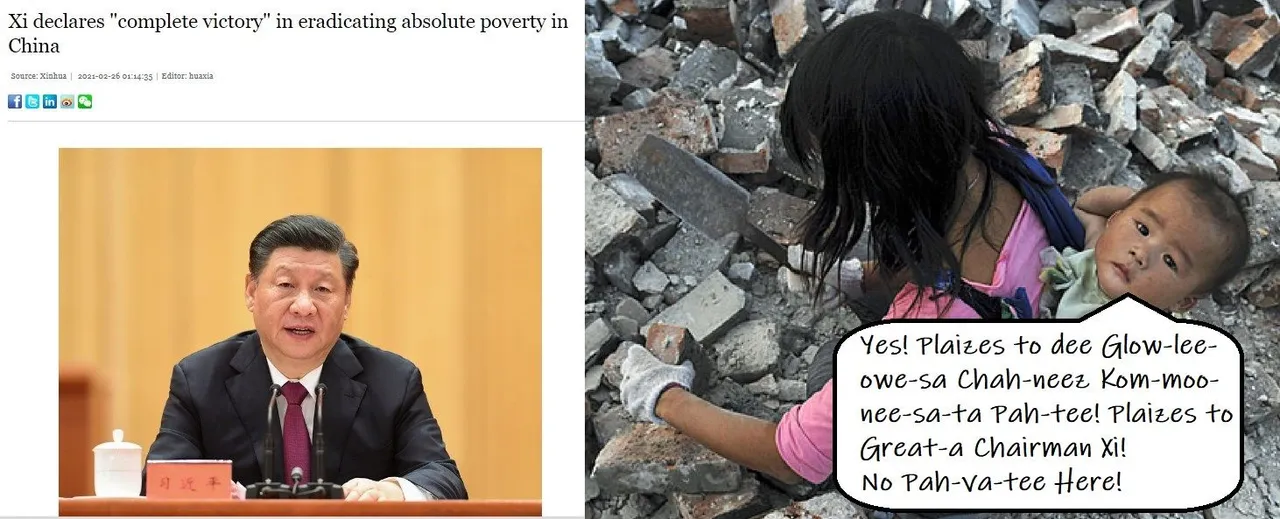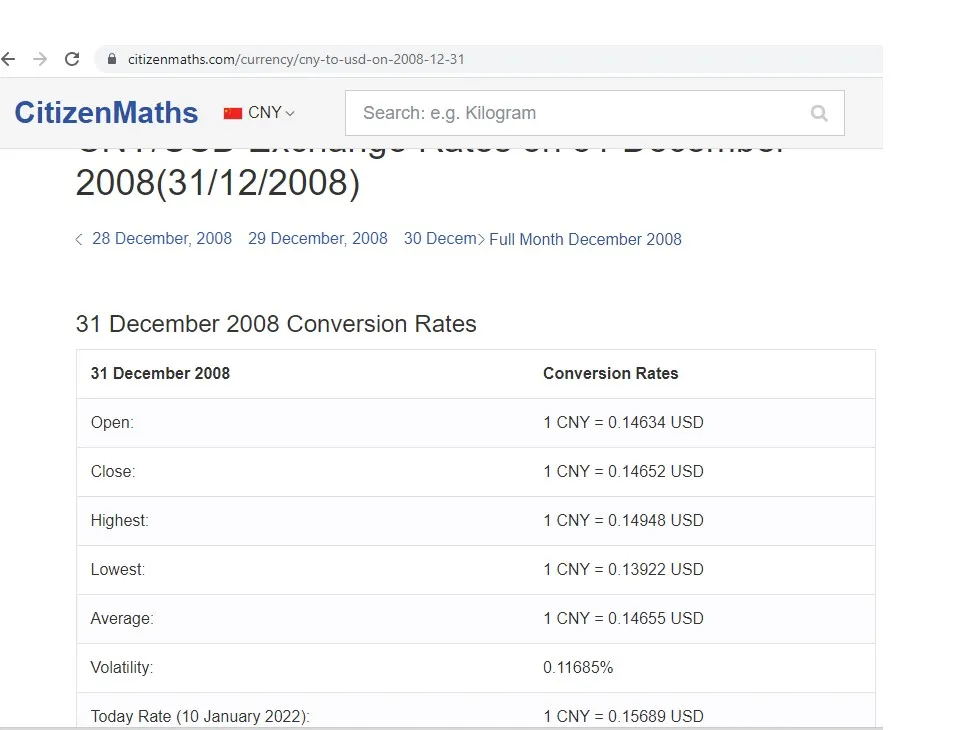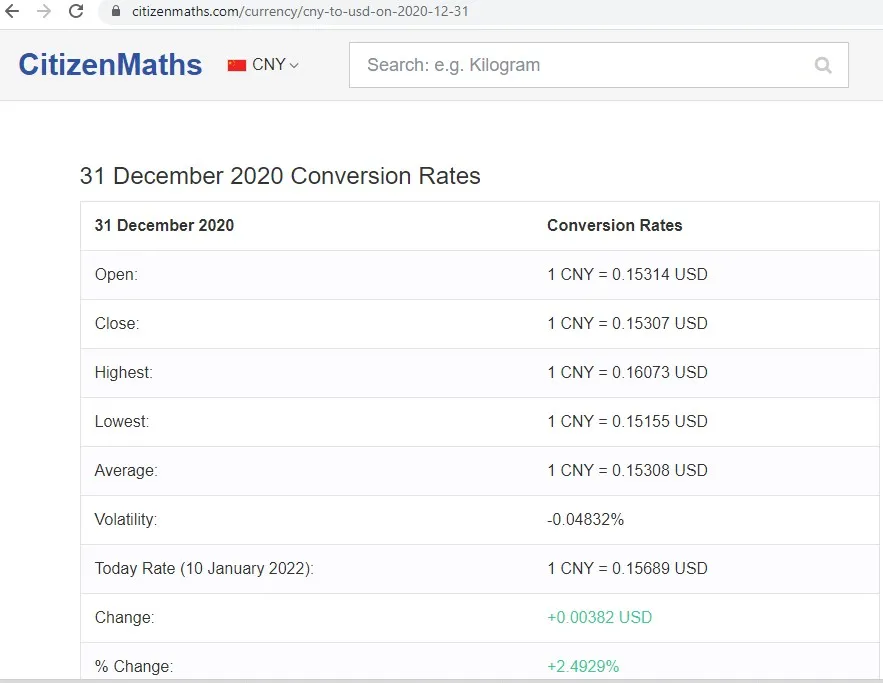
Xi declares "complete victory" in eradicating absolute poverty in China
So goes the headline from a Xinhua article last February. We've all heard the garbage about how China has beaten poverty. This is trumpeted by wumaos, Wolf-Warriors and Western Sinophiles (most of whom have never been to China) as evidence that the Communist Party is supposedly making life better for the people of China. This of course is done partly to service China's egotistical self-worship (there is no God but the State), and partly as a desperate rebuttal when Western countries dare have the unmitigated audacity to actually call China out for their centuries of genocidal bloodshed, which have currently finished grinding the Tibetans under heel and have now turned their attention to the Uighurs.
And of course, this claim is being made by the same government that lied about everything from their GDP (Cary; Reuters Staff) to their Coronavirus data (Campbell & Gunia; Romaniuk & Burgers; Calhoun) to the extent of their borders to a host of other things across history, a country who even invented a fictional French reporter (Respinti) and a matching fictional Swiss biologist (Aljazeera Staff) in their childish attempts to push their propaganda onto a world population who they seem to think is as gullible as their own.
Whatta You Mean-a "Pah-Va-Tee?"
To begin with, China doesn't even use the same definition of the word poverty that the rest of the world uses. Let's look at the Chinese-issued textbook China's Social Development, from the CCP-written, CCP-published series Sinopedia.
By 2008, the number of utterly poor, with an annual net income below 785 Yuan per head, was 14.79 million, while that of the low-income group,with an annual net income of 786 to 1067 yuan, reached 28.41 million.
In 2008, in urban areas, 23.35 million persons from 11.11 million poverty-hit households enjoyed a minimum subsistence allowance for urban residents - 205 yuan per month per capita.
In 2008, in rural areas, 42.84 million persons from 19.67 million poverty-hit households enjoyed a minimum subsistence allowance for rural residents - averaging 82 yuan per month per capita.
(p. 100, emphasis mine)
The Sino-defenders will argue that these statistics are outdated as they are from 2008, and I will rip the rug out from under that moronic claim in a later paragraph. For now, I'd like to point out that China defines "poverty" in two categories. A later page of this same textbook (p. 105) labels these "Pseudo-poverty (listed above as the 'low-income group')" and "true poverty (listed above as 'utterly poor,' cited in other sources as 'absolute poverty')." Also, note that the line for both groups is WELL below the poverty line established by the world bank. By China's stats, the "minimum subsistence allowance" for urban residents (meaning, the line at which your income is considered acceptable and you are considered "out of poverty," is 205 yuan (RMB) per month. For rural residents, that line is 82 yuan per month.
This was 2008. On the last day of 2008, one RMB was valued at 0.14655 USD according to Citizenmaths.

If we employ some forgotten ancient knowledge called basic mathematics, we can then see that China considers USD $30.04 per month an acceptable, "above poverty" income for urban residents and USD $12.02 to be the same level of acceptability for rural residents.
The World Bank in the same year defined "poverty" as any income below USD $1.25 per day ($37.5 per month), and that line was set with sub-Saharan Africa in mind. Ergo, China's definition of "poverty" still left the "minimum subsistence allowance" deep below the line that the world's standard still calls poverty. And by the way, these calculations do not even take the high cost of goods and services in Chinese cities into consideration.
Oh, and as a pre-emptive rebuttal to the Sinophiles who will call this "Western lies," let me not only re-iterate that this is quoted from a Chinese textbook, but also point out that this discrepancy between how China measures poverty and how the world measures poverty was flatly admitted by Xi Jinping in a speech on 22 September, 2015.
According to our standards, there are still 70 million people living in poverty in China; According to World Bank standards, 200 million Chinese are still living below the poverty line.
Governance of China, Vol. II, p. 30
And Now, to the Present
But enough of 2008. The article claiming "absolute victory" was written in February of 2021, based on data fabricated in collected in 2020, right? So let's look at China's statistics from 2020 that led them to claim this "victory."
First of all, the World Bank's poverty line at that time lay at USD $1.90 per capita per day (Aguilar et al). Measured annually, this comes to USD $693.50 per annum per capita.
Regarding China's average annual salary that year, their government does not publish that information (which is telling), choosing instead to dwell on "disposable income," as they measure it (National Bureau of Statistics). Statista reports the following.
In 2020, an employee in the urban regions of the Chinese Jiangsu province earned around 103,600 yuan per annum on average. The national average reached about 97,400 yuan in 2020. Aside from regional discrepancies, the respective industry had a large influence on the average annual salary of employees in urban China. Employees in the IT sector of China earned about 177,500 yuan on average, whereas people employed in the agricultural sector had an average annual salary of about 48,500 yuan in 2020.
So now, we have a reasonable estimate of China's average income (or at least, what the Chinese government CLAIMS China's average income is, in a year when millions were locked in their homes living on a 1.5 RMB per week in Covid relief while they couldn't work) for 2020, and we know the World Bank's poverty line for the same year. So now, let's look again at Citizenmaths to see how those average salaries look in US dollars.

Hence we see that the average salary in rural China is $7,609.17 per annum, slightly more than 10 times the global poverty level. The average of the entire country was USD $15,281.09 annually, roughly 1/3 of what the average homeless panhandler in the United States makes (Ziprecruiter, Robbins) and that's an average that is spiked upward by the world's largest population of billionaires. Math then leads us to the conclusion that the ACTUAL common salary, the modal salary, is far lower. And let us recall, this is the average, not the lowest point. So what percentage of the population earns below that average?
The fact that China publishes no data on that score (data.Worldbank.org) is quite telling once again, and Lily Kuo of the Washington Post noted that China was not forthcoming about which orifice they pulled these "statistics" from.
But neither Xi nor state media explained how the figures were calculated and what threshold was used, prompting questions about the metrics. In 2019, China’s statistics bureau defined rural poverty as below per capita annual income of 2,300 yuan ($356). Previous officials have defined the poverty line as less than 4,000 yuan ($620) a year, or $1.69 a day — less than the World Bank’s threshold of $1.90 a day and well below the $5.50 a day that economists recommend for upper-middle-income countries.
But we can get some clues from what China DOES publish. First of all, China's poverty line for this year of 4,000 RMB, or USD $619 (CGTN) is STILL below the World Bank's Poverty line. This means that even if China IS telling the truth about having lifted their entire population above their poverty line, this is STILL below the world's poverty line. And for the record, there are many in China who are so outraged at their government's chestbeating about their "poverty alleviation" that they have risked imprisonment by speaking out to decry these lies Emily Feng of NPR interviewed residents and reported thus.
"We were tricked," said Luo Beiling, who relocated her family to Qixingguan, a new district in Bijie, a city scattered in between mountains in Guizhou province, in 2018. She and other residents say commitments to provide good jobs never materialized, revealing how the sticky legacy of inequality – between China's affluent urban centers and its more rural outposts – remains.
(Feng, NPR)
Let us also step back and ask a few questions. Considering that millions in China are out of work due to the ongoing online education crackdown (Huang), adding to the 80 million who lost their jobs due to the Covid lockdowns (He & Gan), how does someone with an annual income of USD $0.00 rank above the poverty line? And even if any of China's statistics are even close to honest (see my earlier thoughts on THAT score), let us examine the rising cost of food in China (Cheng) and ask if China's suddenly "lifted from poverty" rural population can afford such "luxuries" as, say, food.
How's that "poverty relief" looking now?
How Did We Get to This Point?
Let me be frank. The fact that I have to write this article at all makes me a bit ashamed for my country and indeed my entire species, because the fact that this CCP nonsense gets any traction at all is a damning indictment against the average netizen's ability to do any God-damned actual research. But then again, as a teacher I am accustomed to correcting ignorance and as a China-watcher I am accustomed to dealing with brainwashed people. So, dear reader, here we are. I would say "I hope this article has been informative" but frankly, it would be closer to the truth to say "it SCARES me to think that this article has been informative," or that there was anyone who did not already know this. Rather, I truly hope most of my readers found little here they did not already know. And if, before reading this, you harbored any delusions about there being any truth to China's "we have beaten poverty" claims, please, PLEASE, realize you are most definitely one of the aforementioned, the "brainwashed" and "ignorant," and wake the f**k up.
Works Cited
Aguilar, R. Andres Castaneda; Fujs, Tony; Lakner, Christopher; and other contributors. "March 2021 global poverty update from the World Bank." Worldbank.org. 16 Mar, 2021. Web. 10 Jan, 2022. https://blogs.worldbank.org/opendata/march-2021-global-poverty-update-world-bank#:~:text=While%20the%20poverty%20rate%20is,US%243.20%20and%20US%245.50.
Aljazeera Staff. "Fictitious Swiss Scientist Entangles China’s State Media." Al Jazeera. 11 Aug, 2021. Web. 10 Jan 2022. https://www.aljazeera.com/news/2021/8/11/fictitious-swiss-scientist-entangles
Calhoun, Gary. "Part 2: Beijing Is Intentionally Underreporting China’s Covid Death Rate." Forbes. 5 Jan, 2022. Web. 10 Jan, 2022. https://www.forbes.com/sites/georgecalhoun/2022/01/05/beijing-is-intentionally-underreporting-chinas-covid-death-rate-part-2/?sh=7d03b66b73b8
Campbell, Charlie & Gunia, Amy. "https://time.com/5813628/china-coronavirus-statistics-wuhan/." Time. 1 Apr, 2020. Web. 10 Jan, 2022. https://time.com/5813628/china-coronavirus-statistics-wuhan/
Cary, Eve. "The Curious Case of China’s GDP Figures." The Diplomat. 5 Marc, 2013. Web. 10 Jan, 2022. https://thediplomat.com/2013/03/the-curious-case-of-chinas-gd-figures/
CGTN Staff. "China's poverty line: 4,000 yuan a year per person, or $619." CGTN. 24 Feb, 2021. Web. 10 January, 2022. https://news.cgtn.com/news/2021-02-24/China-s-poverty-line-4-000-yuan-a-year-per-person-or-619-Y9eCCfcdHi/index.html
Cheng, Evelyn. "Food prices in China climbed every week of October, commerce ministry says." CNBC. 3 Nov, 2021. Web. 10 Jan, 2022. https://www.cnbc.com/2021/11/04/food-prices-in-china-up-every-week-of-october-commerce-ministry-says.html
"CNY/USD Exchange Rates on 31 December 2008(31/12/2008)." Citizenmaths. https://citizenmaths.com/currency/cny-to-usd-on-2008-12-31, accessed 10 Jan, 2022.
"CNY/USD Exchange Rates on 31 December 2020(31/12/2020)." Citizenmaths. https://citizenmaths.com/currency/cny-to-usd-on-2020-12-31, accessed 10 Jan, 2022.
Data.Worldbank.Org. "Proportion of people living below 50 percent of median income (%)." https://data.worldbank.org/indicator/SI.DST.50MD?locations=CN , accessed 10 Jan, 2022.
Feng, Emily. "China Says It Has Ended Poverty. Is That True?." NPR. 27 Apr, 2021. Web. 10 Jan, 2022. https://www.npr.org/sections/goatsandsoda/2021/04/27/987618404/china-says-it-has-ended-poverty-is-that-true
He, Laura & Gan, Nectar. "80 million Chinese may already be out of work. 9 million more will soon be competing for jobs, too." CNN. 8 May, 2020. Web. 10 January, 2022. https://edition.cnn.com/2020/05/08/economy/china-unemployment-intl-hnk/index.html
Huang, Zheping. "ByteDance Lays Off Hundreds After China’s Tutoring Crackdown." Bloomberg. 5 Aug, 2021. Web. 10 Jan 2022. https://www.bloomberg.com/news/articles/2021-08-05/bytedance-lays-off-hundreds-after-china-s-education-crackdown
Kuo, Lily. "China Claims to Have Eliminated Poverty, But the Figures Mask Harsh Challenges." Washington Post. 25 Feb, 2021. Web. 10 Jan, 2022. https://www.washingtonpost.com/world/asia_pacific/china-poverty-economy-growth/2021/02/25/9e92cb18-7722-11eb-9489-8f7dacd51e75_story.html
National Bureau of Statistics Staff. "Households' Income and Consumption Expenditure in 2020." National Bureau of Statistics (China). 19 Jan, 2021. Web. 10 Jan, 2022. http://www.stats.gov.cn/english/PressRelease/202101/t20210119_1812523.html
Reuters Staff. "China's GDP is "Man-made," Unreliable: Top Leader." Reuters. 6 Dec, 2010. Web. 22 Jan, 2022. https://www.reuters.com/article/us-china-economy-wikileaks-idUSTRE6B527D20101206
Respinti, Marco. "“Laurène Beaumond”: Fake Journalists and Pakistani Hired Guns." Bitter Winter. 24 Apr, 2021. Web. 10 Jan, 2022. https://bitterwinter.org/laurene-beaumond-fake-journalists-and-pakistani-hired-guns/
Robbins, Kayla. "How Much Do Panhandlers Actually Make?" Invisible People. 4 Oct, 2019. Web. 10 Jan, 2022. https://invisiblepeople.tv/how-much-do-panhandlers-actually-make/
Romaniuk, Scott & Burgers, Tobias. "Can China’s COVID-19 Statistics Be Trusted?" The Diplomat. 26 Mar, 2020. Web. 10 Jan 2022. https://thediplomat.com/2020/03/can-chinas-covid-19-statistics-be-trusted/
Tang Jun, Zhang Yi, Wang Chunguang & Feng Ling. Trans. Pan Zhongming, Zhang Hongpeng & Gao Jin'an. China's Social Development. Beijing, 2010. China Intercontinental Press.
ISBN 978-7-5085-1306-5
Xi Jinping. The Governance of China, Vol. II. Beijing, 2017. Foreign Languages Press.
ISBN 978-7-119-11163-6
Xinhua Staff. "Xi declares "complete victory" in eradicating absolute poverty in China." Xinhua. 25 Feb, 2021. Web. 10 Jan, 2022. http://www.xinhuanet.com/english/2021-02/26/c_139767705.htm
Ziprecruiter Staff. "Homeless Salary." Ziprecruiter. 2 Jan, 2022. Web. 10 Jan, 2022. https://www.ziprecruiter.com/Salaries/Homeless-Salary
